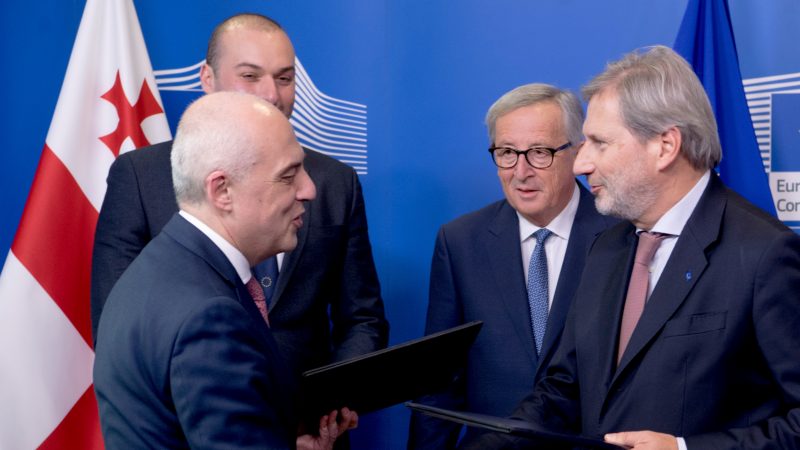
Minister of Foreign Affairs of Georgia Davit Zalkaliani published an exclusive op-ed in Euroactive, ahead of the Batumi Conference “Georgia’s European Way” In connection with the 10th anniversary of the Eastern Partnership.
“Georgia intends to continue on its path to EU membership and wants to use all available opportunities and instruments to achieve this self-proclaimed objective”, – writes David Zalkaliani.
“From the very inception of the Eastern Partnership initiative ten years ago, we often hear discussions about what Eastern Partnership is and what it is not. We hear that it is not about geopolitical competition and that it is not targeted against anyone else; EU officials repeat tirelessly that it is not about making or imposing foreign policy choices on Eastern partners; we hear that it is not about creating new dividing lines between East and West and that it certainly is not about the membership in the EU.
All of the above may be true depending on one’s perspective and ambition. Ten-year anniversary and its celebrations at the Batumi international conference is a good opportunity to highlight political meaning and importance of Eastern Partnership from the perspective of Georgia.
With the hindsight of ten years we can confidently say that the EaP was bold, visionary and political initiative. It brought all six partners closer to the EU in accordance to their individual preferences, ambitions and starting points. Over the last decade or so, Georgia moved from being a country outside of the EU’s neighborhood to being among the closest strategic partners and an associated state to the EU.
Today Georgia enjoys free trade with the EU, visa free movement and has access to numerous EU programs and agencies. In other words, the distance between the EU and Georgia has been considerably reduced and an ambitious bilateral agenda has been put in place. The EaP therefore is first and foremost about shrinking the distance, both physical and political between the EU and its Eastern partners.
For Georgia, therefore, the EU and by extension the EaP is about making a choice. It was neither imposed no forced upon us. To the contrary, it is our sovereign, civilizational choice which reflects the will of the Georgian people and which we are ready to defend despite the costs.
We do not believe that the wish of Georgia to become a European institutional democracy and to join the ranks of the EU member states is a choice targeted against anybody nor is it the one creating new dividing lines as some fear. To the contrary, it is about extending the zone of peace, prosperity and democracy in our volatile region, which could only benefit all and serve interests of international security and stability.
We accept that Eastern Partnership is not about membership in the EU. This is certainly not a shared ambition of all six partners. Georgia, however, has benefitted from the nuanced and differentiated approach of the EaP, which brought some of the partners, Georgia included to the Association Agreements.
Georgia intends to continue on this path and to use all the available opportunities and instruments with the aim of advancing on the path of membership by strengthening its institutions, by sharing values, by deepening sectoral and economic integration and by being ready when the EU is ready. Like in the past, also in the future the EaP can offer different partners different goals and opportunities in line with their interests and ambitions and in accordance with principles of differentiation and more for more.
For the EaP to remain effective and successful in the next ten years, it needs to stay flexible, dynamic and forward-looking. It needs focus and new milestones that can be adjusted for each partner.
Differentiation does not threaten inclusivity and cohesion of this initiative. To the contrary, danger lies in reducing its ambitions to the lowest common denominator and thus rendering it less relevant for some partners.
There is much potential in increasing connectivity, improving economic development, encouraging investments and creating a common economic, cultural and political space between us and the EU. The EaP countries together represent the tenth trading partner for the EU. There is a mutual benefit in developing our partnership and in making it a win-win case for all”, – the article by Davit Zalkaliani reads.






